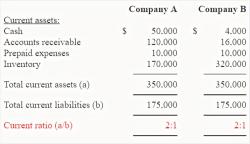What does it mean to get a lump sum payout?
A lump sum payout, often simply referred to as a "lump sum," is a one-time, single payment made to an individual or entity, typically in lieu of a series of smaller payments or as an alternative to a structured payout plan. It is a fixed amount of money paid all at once rather than in installments over time. Lump sum payouts can be encountered in various contexts, including:
Insurance Claims: When you file an insurance claim, the insurance company may offer you a lump sum payment to settle the claim, rather than making periodic payments to cover the costs associated with the claim. This can apply to various types of insurance, such as life insurance, health insurance, or property insurance.
Lottery Winnings: Lottery winners can often choose between receiving their winnings as a lump sum or as an annuity, which is paid out in regular installments over a specified period. The lump sum option provides the full prize amount upfront but is usually smaller than the total annuity value.
Settlements: In legal cases, parties involved in a lawsuit may agree to a lump sum settlement, where one party pays a fixed amount to resolve the dispute, instead of going through a lengthy trial process or agreeing to a structured payment plan.
Pensions and Retirement Plans: Some retirement plans and pensions allow individuals to receive their retirement savings as a lump sum when they retire, rather than as a series of monthly payments.
Employee Bonuses: Employers may offer employees lump sum bonuses, which are typically one-time payments, as a reward for good performance or to incentivize certain behaviors or outcomes.
Inheritance: When someone passes away and leaves an estate, beneficiaries may receive their inheritance as a lump sum, which includes all the assets and funds from the estate.
Lump sum payouts have advantages and disadvantages. On the one hand, they provide immediate access to a significant amount of money, which can be advantageous for addressing financial needs or investment opportunities. On the other hand, lump sums can be spent or invested unwisely if not managed carefully.
Before accepting or opting for a lump sum payout, it's essential to consider your financial goals, needs, and circumstances. You may want to consult with financial advisors or professionals to make informed decisions about how to handle a lump sum payout to best meet your financial objectives.
What a Lump Sum Payout Means for Lottery Winnings
A lump sum payout is a one-time cash payment that is given to lottery winners who choose to receive their winnings in this way. Lump sum payouts are typically smaller than the total amount of money that a winner would receive over time if they chose to receive their winnings in annuity payments. However, lump sum payouts offer winners the flexibility to use their winnings however they choose.
Taking Lottery Prizes as One-Time Cash Payments
To take a lump sum payout, lottery winners typically need to make their choice within a certain period of time after winning. For example, in the United States, most lottery winners have 60 days to choose between a lump sum payout and annuity payments.
Once a winner has chosen to take a lump sum payout, they will typically receive their winnings within a few weeks. The exact amount of time it takes to receive a lump sum payout will vary depending on the lottery jurisdiction and the winner's financial institution.
Pros and Cons of Lump Sum Lottery Payouts
There are a number of pros and cons to consider when deciding whether to take a lump sum lottery payout.
Pros:
- Flexibility: Lump sum payouts offer winners the flexibility to use their winnings however they choose. Winners can use their winnings to pay off debt, buy a house, invest, or start their own business.
- Immediate access to money: Lump sum payouts are typically paid out within a few weeks, giving winners immediate access to their winnings.
- Avoid market risk: Lump sum payouts are not subject to market risk. This means that winners do not have to worry about losing money if the stock market or other financial markets decline.
Cons:
- Smaller payout: Lump sum payouts are typically smaller than the total amount of money that a winner would receive over time if they chose to receive their winnings in annuity payments.
- Financial responsibility: Lump sum payouts require winners to be financially responsible. Winners need to have a plan for how they will use their winnings and avoid spending them all at once.
- Tax implications: Lump sum payouts are subject to income taxes. Winners may need to pay a significant amount in taxes on their winnings, depending on their tax bracket.
Overall, the decision of whether to take a lump sum lottery payout is a personal one. There is no right or wrong answer. Winners should carefully consider the pros and cons of each option before making a decision.
If you are a lottery winner, I recommend that you consult with a financial advisor to help you make the best decision for your individual circumstances.












